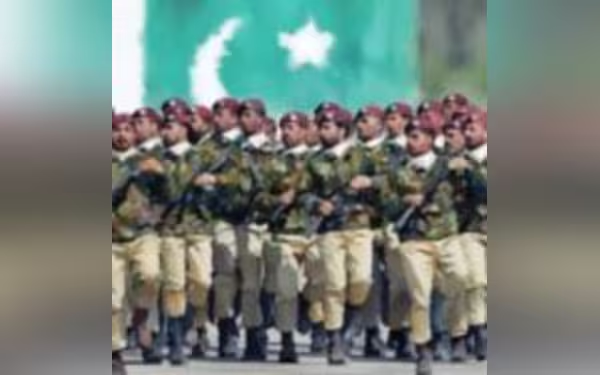Saturday, November 16, 2024 07:46 PM
Military Leadership Tenure and Its Impact on National Security
- Longer tenures enhance military professionalism and stability.
- Extended leadership fosters trust with political and military entities.
- Experienced Army Chiefs improve operational readiness and defense strategies.
 Image Credits: pakistantoday
Image Credits: pakistantodayExploring the significance of Army Chief tenure on military independence and national security.
The tenure of the Chief of Army Staff is a significant aspect that influences the military's professionalism, operational readiness, and its relationship with civilian leadership. In various countries, the length of time an individual serves as Army Chief can have profound effects on both military operations and the political landscape. A longer tenure is often seen as beneficial because it provides stability and consistency in military leadership.
When an Army Chief serves for an extended period, they can implement long-term strategies, manage complex defense reforms, and ensure that the military functions smoothly. Frequent changes in leadership can disrupt operations, especially during times of national security challenges or when the military is involved in long-term commitments. Continuity at the top helps maintain consistent defense strategies and allows military operations to proceed without interruptions.
Moreover, a longer tenure enables the Army Chief to build stronger relationships with political leaders, international allies, and military personnel. This fosters trust and enhances collaboration, which is crucial for effective governance. Extended leadership also plays a vital role in strengthening military institutions. It allows the Army Chief to address structural issues, implement necessary reforms, and enhance the professionalism of the armed forces.
Military reforms, whether in modernization, training, or operational readiness, often require sustained leadership to achieve long-term goals. An extended tenure provides the opportunity for comprehensive planning and the ability to follow through on these initiatives. Additionally, it allows the Army Chief to oversee the professional development of the officer corps, resulting in a more competent leadership team that is better equipped to tackle future challenges.
While longer tenures can sometimes raise concerns about democratic governance and civilian control, there are instances where such extensions have positively impacted the independence and professionalism of the armed forces. For example, General Valery Gerasimov of Russia has served as the Chief of the General Staff since 2012. His long tenure has allowed the Russian military to modernize its strategies and improve readiness, focusing on hybrid warfare and cyber capabilities.
Turkey presents another interesting case regarding the relationship between the Army Chief's tenure and military independence. Historically, the Turkish military has played a significant role in politics, but recent reforms have aimed to reduce its political influence. Despite these changes, the extended terms of Army Chiefs have been crucial in maintaining the military's professionalism and operational effectiveness. Long-serving commanders have helped stabilize Turkey's defense institutions during political and economic turmoil.
The length of an Army Chief's tenure is a critical factor in balancing military leadership, civilian oversight, and national defense. While it is essential to ensure that military power does not overshadow democratic governance, extending the tenure of the Army Chief can enhance national security and contribute to a more stable political environment. As nations navigate complex security challenges, the importance of experienced military leadership cannot be overstated. A well-prepared military, led by a seasoned Army Chief, is better positioned to defend the nation and uphold democratic values.













